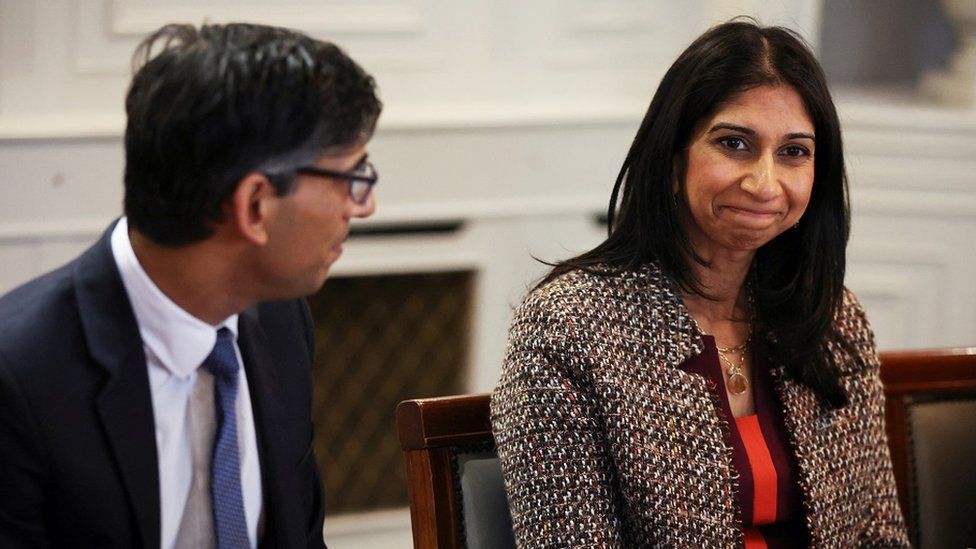ARTICLE AD BOX
 Image source, Getty Images
Image source, Getty Images
By Iain Watson
Political correspondent, BBC News
"Getting your retaliation in first" is a familiar and often effective political tactic.
Government ministers are anticipating record high net migration figures later this week.
The figure is expected to be between 700,000 and 800,000.
So, stopping students on short postgraduate courses from bringing their dependents to the UK will signal a willingness to get number down.
Although it will not include those who are in the UK for less than a year, who don't count in the migration statistics.
When the latest figures are released on Thursday, expect the government also to re-emphasise that its priority is curbing illegal immigration.
Ministers will also point to some of the temporary drivers of higher net migration.
For example, around 175,000 Ukranians have come to the UK since Putin's invasion.
But Prime Minister Rishi Sunak still faces a political problem.
Many Brexit voters simply won't feel the UK has "taken back control" on immigration, when net migration is much higher than it was when there was free movement from the EU.
Record high
The Conservative manifesto in 2019 pledged to "get overall numbers down", at a time when annual net migration was 226,000.
The most recent figures, released at the end of last year, show 504,000 more people came to the UK than left - the highest figure ever recorded. This will be spectacularly surpassed on Thursday.
Rishi Sunak has said the migration numbers are too high, but appears to be suggesting he will get them down from the figures he inherited when he became prime minister in October, not the lower number promised in the 2019 Tory manifesto.
His home secretary, Suella Braverman, wants to get net migration down to pre-pandemic levels, and seems keen - over time - to fulfil the David Cameron-era pledge to get the numbers below 100,000.
Labour has made vague promises to cut numbers - by increasing skills - but Mr Sunak is far more likely to face problems from his own side.
MPs supportive of Mrs Braverman are making it clear that she had ambitions to go further than limiting the number of students' dependents.
They say PHD students should also have been prevented from bringing dependents, although the numbers that fall into this category are lower.
British workers
Mrs Braverman's supporters also believe overseas students should be limited to remaining in the UK for six months after graduating.
They would also raise the earnings requirement for those coming to the UK for work, though they would accept exemptions where there are serious shortages of staff.
The Department for Education clearly had an input on the issue of student visas, and it took repeated efforts by the Home Office to get an agreement on the new policy announced earlier today. The Treasury and Downing Street were also involved in the discussion at various stages.
Some of those MPs close to the home secretary single out the Treasury for criticism, claiming that Chancellor Jeremy Hunt is worried about the short-term impact on the economy of limiting numbers.
They are concerned employers will not have enough incentive to train British workers - something Sulla Braverman spoke about recently - if firms can too easily import foreign workers.
The government is confident that with fewer Ukrainians likely to come to the UK in future, and fewer student dependents, net migration numbers will be going in the right direction - as they see it - by the general election, expected next autumn.
But restless Conservative backbenchers know that is not the promise they made to their voters at the last general election.

 1 year ago
28
1 year ago
28








 English (US) ·
English (US) ·